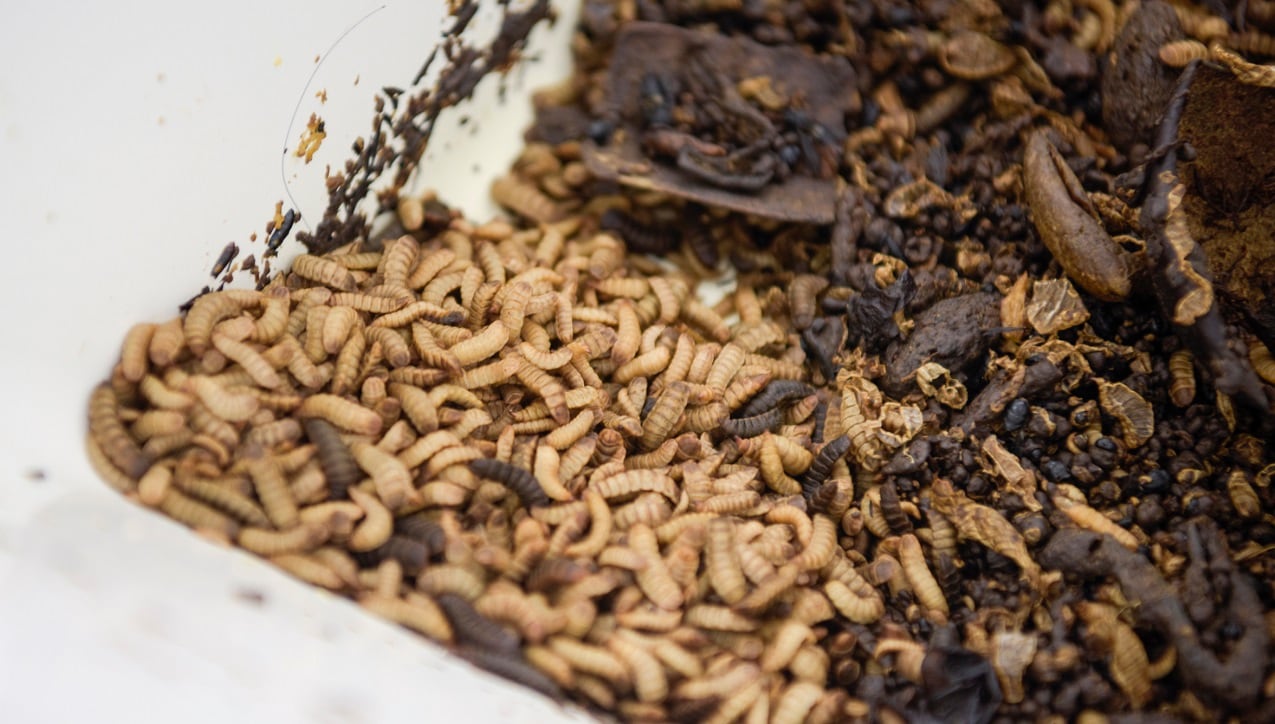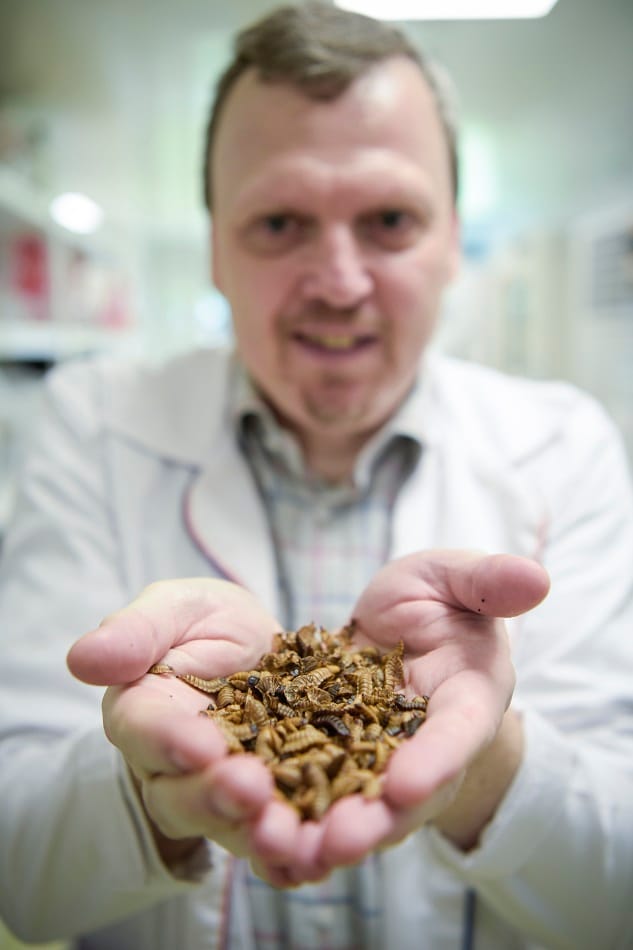Leftover Food? Feed It to a Fly
03 May 2018Small in size but big in appetite – the black soldier flies could be the future of food waste disposal.
Two generations ago, when Singapore was dotted with animal farms and kampungs, food scraps was often used as feed for livestock. It was part of the meal cycle – leftovers were fed to farm animals, which would eventually end up as food on the table.
Now, high-rise buildings stand where farm animals used to roam. And with growing affluence, Singapore is now producing more food waste. In 2016, the city produced almost 800,000 tonnes of food waste – equivalent to 134,000 African bush elephants, the largest land animal that weighs about 6 tonnes.

Black soldier fly maggots feeding voraciously on food waste.
These leftovers are now collected and burned. But a group of young urban farmers, and biological science professors from the National University of Singapore (NUS), think it is a waste of energy. The two groups want to tackle the food waste problem with help from an unlikely assistant – black soldier flies.

Prof Rudolf Meier with a handful of black soldier flie larvae.
While small in size, the flies have appetites that can rival competitive eaters. As maggots, the flies feed on organic waste. When they enter the pupa stage, they are so rich in nutrients they make perfect feed for fish, poultry and pigs. This means food waste is recycled as animal feed instead of being thrown away.
With support from Temasek Foundation, which funds programmes that champion sustainability or develop solutions to improve liveability, the two groups are hoping to turn their respective research and hard work into reality that can make a difference in food security.
In a room in NUS’ insectary, Prof Rudolf Meier has been rearing and studying the flies for about three years. In a netted cage, the flies roam around, mate and lay eggs in crevices found in cardboard pieces. The eggs are then deposited in boxes filled with food waste – anything from waffles to fried beehoon.
When hatched, the maggots feed voraciously on the waste. After they become pupae, they crawl out of the boxes and fall into a tray, ready for mating or to be harvested.
Prof Meier is working on breeding a type of fly that is particularly suitable for rearing in a compact, space-efficient vertical system. The flies will be fed with food waste from canteens in the university campus. They will then be converted as animal feed or plant fertilisers.
“There is a lot of potential with insect farming. I have about 10 more years to retirement, and I want to use the time to develop an efficient food recycling system for Singapore.”